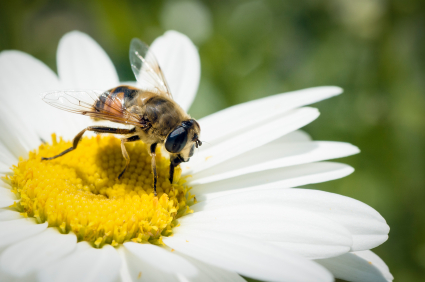Honey Bees: An Interview with Madhava
An Interview with Madhava Natural Sweeteners
Have you seen a decline in your bees due to colony collapse disorder?
There has been a problem worldwide with colony collapse.
What species is the most affected?
There are organizations that are studying this closely.
Why are bees so important?
Honeybees are best known for making honey but they also play a critical role in our food supply. In fact, about one-third of the human diet comes from pollinated plants; and the honeybee is responsible for 80 percent of that pollination. Honeybees pollinate everything from apples and avocados to strawberries and melons.
How can people encourage pollinators in their neighborhoods?
There are a lot of things you can do, starting in your own backyard. Plant an organic garden with flowers that are attractive to bees; and let the dandelions grow. The bees need something to feed on or they will find a new home.
Consider placing a beehive outside the kitchen window so friends and family can watch the bees from the inside. And of course, the best way to encourage people is to sweeten the pot and give them a jar of delicious honey.
What products should we avoid around the home that may be harmful to bees?
Use baking soda and vinegar and other natural products for cleaning around the house. It’s good for the environment and healthy for humans as well as bees. And if you don't want to make your own cleaning solutions, there are plenty of natural and organic options at your local natural grocery store too. If you're trying to get rid of weeds, do it the natural way by pouring boiling water on them or put vinegar in a spray bottle and spray them so they dry up in the sun. Encourage your neighbors and homeowners association to do the same since winds can blow pesticides from one area to another.
What are good beekeeping and honey making practices and what are bad practices?
The best beekeepers learn everything they can by reading books and websites; finding a good mentor; and joining local beekeeping groups. They also use new equipment and start small. Responsible beekeepers make sure they don't overwork, disturb or rush the bees. Also, make sure you don’t take all the honey; leave some for the bees to feed on during the winter. The pollen is good for bees just as it is for people.
Why is Madhava honey unique and special?
Madhava has been making 100 percent pure honey for nearly 40 years, working with second- and third-generation beekeepers. We use gentle straining and low temperature melting to preserve the natural pollens. We carefully select only the best-tasting honey from reputable, conscientious beekeepers. We believe you can really taste the difference.

